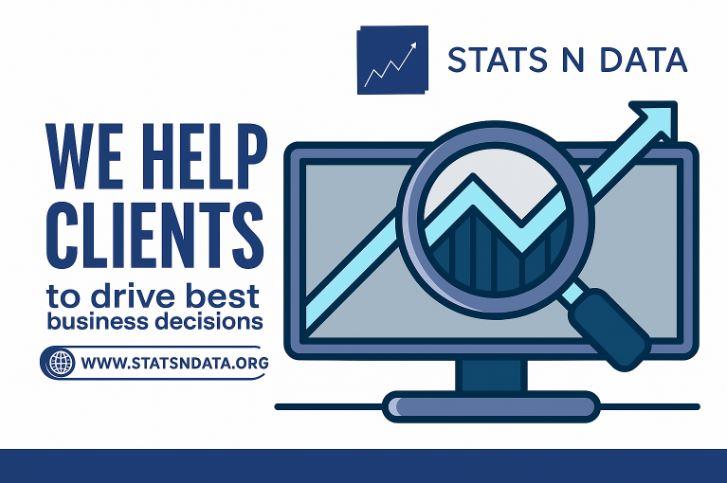Press release
Intelligent Virtual Assistant Software Market 24.60% CAGR Growth Insights from Next IT Anboto Group H care Inbenta Technologies Eidoserve CX Company Creative Virtual and Ecreation
The Intelligent Virtual Assistant (IVA) software market is experiencing significant growth, driven by advancements in artificial intelligence and increasing demand for automated customer service solutions. Businesses across various sectors are increasingly adopting IVAs to enhance user engagement, streamline operations, and reduce operational costs. These virtual assistants leverage natural language processing, machine learning, and voice recognition technologies to provide personalized interactions and improve customer satisfaction. The market is projected to grow at a compound annual growth rate (CAGR) of 24.60% from 2025 to 2032, reflecting a robust expansion as organizations seek innovative solutions to meet the evolving needs of consumers.You can access a sample PDF report here: https://www.statsndata.org/download-sample.php?id=78840
This growth is also influenced by the rising prevalence of smart devices and the proliferation of voice-activated technologies. As consumers become more accustomed to interacting with machines through conversational interfaces, the demand for intelligent virtual assistants is expected to surge. The trend towards remote work and digital transformation initiatives further accelerates this demand, as businesses look for efficient and scalable ways to support their operations. By 2032, the market is expected to surpass a valuation of several billion dollars, underscoring the increasing importance of IVAs in enhancing business capabilities and customer experiences. As the technology continues to evolve, we can anticipate further innovations that will redefine how consumers and businesses interact in the digital landscape.
The Intelligent Virtual Assistant (IVA) Software market is witnessing a remarkable transformation, driven by technological advancements and the increasing demand for enhanced customer experiences. This market encompasses a broad array of applications, including automated customer service, marketing assistance, and personal productivity tools. As businesses strive to improve efficiency and customer engagement, the adoption of AI assistant software is rapidly becoming a necessity rather than a luxury.
Recent developments in virtual assistant technology have catalyzed significant growth in this sector. Breakthroughs in natural language processing (NLP) and machine learning are enabling more sophisticated interactions between users and AI assistants. Companies are increasingly recognizing the value of integrating voice recognition software and AI chatbots into their operations to streamline processes and offer 24/7 support. Strategic partnerships among leading technology firms are further propelling the market, allowing for the development of innovative digital assistant solutions that cater to specific industry needs.
Executives and decision-makers are advised to closely monitor these advancements, as they present actionable insights into future investments and strategies. The market is poised for expansion, and those who leverage intelligent automation effectively will gain a competitive edge.
Key Growth Drivers and Trends
The Intelligent Virtual Assistant market is driven by several compelling factors. Sustainability and digitisation are at the forefront, as businesses seek to reduce operational costs while enhancing service delivery. The shift in consumer expectations towards instant, personalized responses has made it imperative for companies to adopt AI assistants that can cater to diverse needs.
Transformative trends such as the integration of AI into existing systems are reshaping the landscape of virtual assistant technology. Businesses are increasingly investing in customized solutions that offer unique features tailored to their specific requirements. The role of machine learning in virtual assistant software cannot be overstated; it enables systems to learn from user interactions and improve over time, enhancing user experience significantly.
Moreover, the advantages of using virtual assistants in business are becoming more apparent. They not only improve customer engagement but also boost productivity by automating routine tasks. As remote work becomes more prevalent, the demand for cloud-based virtual assistants that facilitate collaboration is on the rise.
As the market evolves, understanding the future trends in intelligent virtual assistants will be critical for businesses aiming to remain competitive. By focusing on user-friendly features and the ability to handle multilingual support, companies can ensure they meet the diverse needs of their customer base.
Market Segmentation
The Intelligent Virtual Assistant Software market can be segmented into two primary categories: Type and Application.
Segmentation by Type:
- Customer Service: These virtual assistants are designed to enhance customer interactions, providing instant support and assistance.
- Marketing Assistant: These tools help businesses with tasks such as lead generation, customer engagement, and market analysis.
- Speech Recognition: This technology allows for the conversion of spoken words into text, enabling more natural interactions with users.
- Text to Speech Recognition: This functionality converts written text into spoken words, facilitating accessibility and user engagement.
Segmentation by Application:
- BFSI (Banking, Financial Services, and Insurance): Virtual assistants in this sector help streamline customer inquiries and manage transactions.
- Automobile: AI assistants in vehicles enhance the driving experience through voice commands and integrated services.
- IT and Telecoms: These sectors utilize virtual assistants for technical support and customer service automation.
- Retail: Virtual personal assistants enhance the shopping experience by providing recommendations and support.
- Health Care: AI assistant software is used for patient management, appointment scheduling, and health monitoring.
- Education: Digital assistants support learning through personalized tutoring and administrative assistance.
- Other: This category includes various industries leveraging virtual assistant technology for specialized applications.
Competitive Landscape
The Intelligent Virtual Assistant Software market is characterized by a competitive landscape featuring several key players. Each of these companies is focused on innovation and expanding their market presence through strategic initiatives.
- Next IT: Known for its robust customer service solutions, Next IT has expanded its offerings through partnerships with leading tech firms, enhancing its AI capabilities.
- Anboto Group: This company specializes in providing AI-driven customer service solutions, recently launching new features that improve user interaction and satisfaction.
- H-care: Focusing on healthcare applications, H-care has developed innovative virtual assistants that streamline patient care and enhance operational efficiency.
- Inbenta Technologies: A leader in NLP, Inbenta has recently integrated machine learning functionalities into its virtual assistant solutions, improving response accuracy and user experience.
- Eidoserve: This company has expanded its presence in the retail sector by launching customized AI chatbots that enhance customer engagement and drive sales.
- CX Company: Known for its advanced speech recognition technology, CX Company has partnered with major telecom providers to enhance service delivery.
- Creative Virtual: This player focuses on providing tailored virtual assistant solutions across various sectors, continuously innovating to meet market demands.
- Ecreation: With a focus on user-friendly digital assistant platforms, Ecreation has rolled out new features aimed at improving customer interactions.
- Nuance Communications: A pioneer in voice recognition software, Nuance has expanded its offerings to include comprehensive digital assistant solutions for enterprises.
- EGain: Known for its customer engagement solutions, EGain has enhanced its AI assistant capabilities to better serve the needs of businesses.
- Viclone: This company has recently launched a suite of AI assistant tools that cater specifically to the education sector, enhancing learning experiences.
- Synthetix: With a focus on intelligent automation, Synthetix is innovating in the realm of AI-driven customer service solutions.
These players are consistently launching new products and forming partnerships to stay ahead in the rapidly evolving landscape of intelligent virtual assistants.
Opportunities and Challenges
As the Intelligent Virtual Assistant Software market continues to grow, numerous opportunities and challenges emerge. Untapped niches such as small businesses and startups present significant monetization avenues, as these entities seek cost-effective virtual assistant solutions for operational efficiency. Understanding evolving buyer personas will be crucial for companies aiming to tailor their offerings to meet specific customer needs.
However, the market is not without its challenges. Regulatory hurdles can impede the adoption of AI assistants, particularly concerning data privacy and security concerns. Companies must navigate these complexities by implementing robust security measures and ensuring compliance with relevant regulations.
Supply chain gaps, particularly in technology development and integration, pose additional challenges. To address these headwinds, businesses should focus on building strong partnerships with technology providers and investing in R&D to create innovative solutions that meet market demands.
Technological Advancements
The Intelligent Virtual Assistant market is at the forefront of technological advancements that are set to redefine the industry. Cutting-edge tools such as AI, digital twins, the Internet of Things (IoT), virtual reality, and blockchain are transforming how virtual assistants operate and interact with users.
AI is the backbone of intelligent automation, enabling virtual assistants to deliver personalized experiences and improve over time through machine learning. Digital twins allow for real-time simulation of user interactions, providing valuable insights into behavior and preferences. The integration of IoT with virtual assistant technology facilitates seamless communication between devices, enhancing operational efficiency.
Virtual reality applications in the Intelligent Virtual Assistant space open up new avenues for user engagement, allowing for immersive experiences that traditional interfaces cannot provide. Additionally, the potential of blockchain technology offers enhanced security and transparency in transactions involving virtual assistants, addressing some of the key concerns associated with data privacy.
The continuous evolution of these technologies will play a crucial role in shaping the future of intelligent virtual assistants, making them more versatile and effective in meeting user needs.
Research Methodology and Insights
At STATS N DATA, our research methodology is designed to provide robust insights into the Intelligent Virtual Assistant Software market. We employ a comprehensive top-down and bottom-up approach to ensure accuracy and depth in our findings. Our primary data collection involves direct consultations with industry experts, stakeholders, and key players, while secondary data sources include industry reports, market analyses, and academic studies.
Multi-layer triangulation is utilized to validate our data, ensuring that our insights are reliable and actionable. By synthesizing this information, we deliver comprehensive analyses that empower executives and decision-makers to make informed choices in their strategic planning.
In conclusion, the Intelligent Virtual Assistant Software market is poised for significant growth, driven by technological advancements and evolving consumer expectations. Businesses that recognize the value of AI assistant software and embrace the latest trends will not only enhance customer engagement but also improve operational efficiency. STATS N DATA is committed to providing authoritative insights that guide organizations in navigating this dynamic landscape successfully.
Get 30% Discount On Full Report: https://www.statsndata.org/ask-for-discount.php?id=78840
In the rapidly evolving landscape of customer service, one prominent player found themselves grappling with a significant challenge. Despite having a robust suite of products, their customer engagement metrics were stagnating, leading to a troubling decline in market relevance. Customers were voicing their frustrations over long wait times and inadequate support, prompting the company to reevaluate its customer interaction strategies. As competitors began to leverage innovative technologies, this key player recognized the urgent need to adopt a more agile, responsive approach to customer service. The traditional methods of handling inquiries through call centers and email support were simply not meeting the expectations of an increasingly tech-savvy consumer base. The demand for immediate, accurate, and efficient responses was growing, and the company faced the daunting task of transforming their customer service model to keep pace with the dynamic market environment.
In response to this pressing issue, the company sought the expertise of a leading analytics firm specializing in intelligent virtual assistant software. Through meticulous data analysis, the firm uncovered critical insights into customer behavior and preferences, revealing patterns that had previously gone unnoticed. By implementing advanced natural language processing algorithms and machine learning capabilities, the analytics team crafted a groundbreaking strategy that integrated an intelligent virtual assistant into the company's existing customer service framework. This innovative solution was designed to handle routine inquiries, provide tailored support, and escalate complex issues to human agents seamlessly. The strategy not only aimed to improve response times but also focused on enhancing the overall customer experience by making interactions more personalized and efficient. The firm's analysis indicated that a well-implemented virtual assistant could significantly reduce customer service costs while simultaneously boosting customer satisfaction.
The results of this strategic overhaul were nothing short of remarkable. Within just a few months of deploying the intelligent virtual assistant, the company observed a dramatic increase in market share, as customer satisfaction ratings soared. The virtual assistant handled over 70 percent of customer queries autonomously, leading to a staggering reduction in average response time from several hours to mere minutes. This newfound efficiency translated directly into increased revenue, as customers were more likely to engage with the brand, leading to higher conversion rates and repeat business. Furthermore, the company reported a 40 percent decrease in operational costs related to customer service, as the need for extensive human intervention diminished. The success of this initiative not only revitalized the company's standing in the market but also set a new standard for customer engagement in the industry. As they continued to refine their approach, the intelligent virtual assistant emerged as a cornerstone of their customer service strategy, proving that innovation and adaptation are essential in today's competitive landscape.
For customization requests, please visit: https://www.statsndata.org/request-customization.php?id=78840
Q: What is an intelligent virtual assistant?
A: An intelligent virtual assistant (IVA) is a software application that uses artificial intelligence (AI) technologies, including natural language processing (NLP), machine learning, and sometimes voice recognition, to interact with users. IVAs can perform a variety of tasks such as answering questions, managing schedules, providing recommendations, and completing transactions. They can be deployed in various formats, including chatbots on websites, voice assistants on smartphones and smart speakers, and customer service agents. The goal of an IVA is to provide a more efficient and personalized experience for users by understanding their needs and responding accordingly.
Q: How do AI assistants improve customer service?
A: AI assistants improve customer service by providing instant responses to inquiries, offering 24/7 support, and reducing wait times for customers. They can handle frequently asked questions and routine tasks, allowing human agents to focus on more complex issues. Additionally, AI assistants can analyze customer interactions to identify trends and preferences, which can inform service improvements. By personalizing interactions and providing consistent support, AI assistants help enhance customer satisfaction and loyalty. They also reduce operational costs by automating processes that would otherwise require human intervention.
Q: What are the benefits of using virtual assistants?
A: The benefits of using virtual assistants include increased efficiency, cost savings, improved customer satisfaction, and enhanced data analysis capabilities. They help businesses streamline operations by automating repetitive tasks, thus freeing employees to focus on higher-value activities. Virtual assistants can also provide insights through data analysis, helping organizations make informed decisions. For customers, virtual assistants offer convenience and immediate assistance, which leads to a better overall experience. Furthermore, they can scale easily with the business, accommodating varying levels of demand without significant additional costs.
Q: Can virtual assistants be integrated with existing tools?
A: Yes, virtual assistants can often be integrated with existing tools and systems. Many virtual assistant platforms offer APIs and connectors that allow them to communicate with customer relationship management (CRM) systems, email platforms, scheduling tools, and other business applications. This integration enables seamless workflows, allowing the virtual assistant to pull information from various sources and deliver it in meaningful ways. For example, an IVA can check a calendar for available meeting times while also accessing a CRM to provide personalized customer information during a conversation.
Q: How does natural language processing work in AI assistants?
A: Natural language processing (NLP) is a branch of AI that focuses on the interaction between computers and humans through natural language. In AI assistants, NLP allows the software to understand, interpret, and respond to user queries in a way that mimics human conversation. This involves several steps, including speech recognition (for voice assistants), language modeling (to understand context and intent), and response generation (to formulate an appropriate reply). NLP algorithms analyze the input text or speech to identify keywords, phrases, and sentiment, enabling the assistant to provide relevant and accurate responses.
Q: What features should I look for in a digital assistant?
A: When choosing a digital assistant, consider features such as natural language understanding, multi-channel support, integration capabilities, personalization options, and analytics. The assistant should be able to understand and respond accurately to user queries, whether through text or voice. Multi-channel support ensures that the assistant can engage users across various platforms, such as websites, mobile apps, and social media. Integration with existing systems is crucial for streamlined operations. Personalization features enhance user experience by tailoring interactions based on user behavior and preferences. Finally, robust analytics tools can help track performance and improve the assistant over time.
Q: Are virtual assistants cost-effective for small businesses?
A: Yes, virtual assistants can be cost-effective for small businesses. They reduce the need for additional staff by automating routine tasks, which can lead to significant cost savings. By handling customer inquiries and support requests, virtual assistants help maintain high levels of service without the overhead associated with hiring and training new employees. Additionally, they allow small businesses to scale their operations efficiently, as they can handle increased demand without the need for proportional increases in labor costs. The initial investment in virtual assistant technology can often be recouped through the efficiencies gained.
Q: How can virtual assistants enhance productivity?
A: Virtual assistants enhance productivity by automating repetitive tasks and providing quick access to information. They can assist employees with scheduling meetings, managing emails, and retrieving data, allowing them to focus on more strategic activities. By streamlining workflows and reducing the time spent on mundane tasks, virtual assistants help teams work more efficiently. Furthermore, they can facilitate collaboration by integrating with project management tools and ensuring that team members are informed and engaged. This increased efficiency leads to faster decision-making and improved overall productivity within the organization.
Q: What are the latest trends in virtual assistant technology?
A: The latest trends in virtual assistant technology include advancements in AI and machine learning, greater personalization capabilities, enhanced voice recognition, and increased integration with IoT devices. AI technologies are becoming more sophisticated, allowing virtual assistants to understand context and manage more complex queries. Personalization is becoming a key focus, with assistants using user data to tailor interactions and recommendations. Voice recognition technology is also improving, making voice-activated assistants more accurate and responsive. Additionally, as the Internet of Things (IoT) continues to grow, virtual assistants are increasingly being integrated into smart home devices and other connected technologies, enhancing their utility.
Q: How secure are intelligent virtual assistants?
A: Security is a critical concern for intelligent virtual assistants, as they often handle sensitive information. The level of security depends on the implementation and the measures taken by the organization. Most reputable virtual assistant providers implement encryption, access controls, and data anonymization to protect user data. It is essential for businesses to assess the security features of any virtual assistant solution they consider. Regular updates, compliance with data protection regulations, and robust user authentication processes are also important to ensure security. Organizations should also educate employees and users about best practices for using virtual assistants securely.
Q: What industries benefit the most from AI assistants?
A: Several industries benefit significantly from AI assistants, including retail, healthcare, finance, telecommunications, and travel. In retail, AI assistants improve customer engagement and streamline the shopping experience. In healthcare, they help schedule appointments, provide patient information, and assist with telemedicine. The finance sector uses AI assistants for customer inquiries, fraud detection, and transaction processing. In telecommunications, they help manage customer support and service requests. The travel industry leverages AI assistants to assist with bookings, provide travel information, and handle customer service inquiries. Overall, any industry that relies on customer interaction can benefit from the efficiencies offered by AI assistants.
Q: How do I choose the right AI assistant for my needs?
A: To choose the right AI assistant for your needs, start by defining your specific requirements, including the tasks you want the assistant to handle and the channels through which it will interact with users. Consider factors such as the level of customization needed, integration with existing tools, and the preferred user interface (text or voice). Evaluate different vendors based on their technology, features, and customer support. It may also be helpful to look at case studies or testimonials from businesses in your industry. Additionally, consider starting with a pilot program to test the assistant's effectiveness before fully implementing it across your organization.
Q: What role does machine learning play in virtual assistants?
A: Machine learning plays a crucial role in the functionality and effectiveness of virtual assistants. It enables the assistant to learn from interactions with users, improving its ability to understand language, recognize patterns, and predict user needs over time. By analyzing vast amounts of data, machine learning algorithms can enhance the assistant's accuracy in responding to queries and provide more relevant recommendations. This ongoing learning process allows virtual assistants to adapt to changing user preferences and improve their performance continuously. Machine learning also supports features such as sentiment analysis, enabling the assistant to gauge user emotions and respond appropriately.
Q: How can businesses customize AI assistants?
A: Businesses can customize AI assistants in several ways to ensure they align with their brand identity and meet specific operational needs. Customization options may include adjusting the assistant's tone and personality to match the brand voice, creating tailored responses to common customer queries, and integrating industry-specific knowledge bases. Additionally, businesses can train the assistant on proprietary data to enhance its relevance and accuracy. Many virtual assistant platforms offer tools for creating custom workflows and integrating with existing systems, which allows businesses to tailor the assistant's capabilities to their unique requirements. Regularly updating the assistant's knowledge and features based on user feedback is also essential for ongoing customization.
Q: What are common challenges in implementing virtual assistants?
A: Implementing virtual assistants can pose several challenges. One common challenge is ensuring that the assistant understands user queries accurately, which can be affected by language nuances and varying dialects. Another challenge is integrating the assistant with existing systems, which may require significant technical expertise. Additionally, businesses must manage user expectations, as AI assistants may not be able to handle all queries or provide human-like interaction in every situation. There are also concerns related to data security and user privacy, which must be addressed to build trust. Finally, ongoing maintenance and updates are necessary to keep the assistant relevant and effective, which can require dedicated resources.
Related Reports:
Automotive HVAC Market
https://www.statsndata.org/report/automotive-hvac-market-279655
Online Course Platform Market
https://www.statsndata.org/report/online-course-platform-market-8044
Healthcare Cloud Solution Market
https://www.statsndata.org/report/healthcare-cloud-solution-market-124181
Off-grid Solar PV Panels Market
https://www.statsndata.org/report/off-grid-solar-pv-panels-market-6086
Medical Device Contract Research Organization (CRO) Market
https://www.statsndata.org/report/medical-device-contract-research-organization-cro-market-9360
John Jones
Sales & Marketing Head | Stats N Data
Email: sales@statsndata.org
Website: www.statsndata.org
STATS N DATA is a trusted provider of industry intelligence and market research, delivering actionable insights to businesses across diverse sectors. We specialize in helping organizations navigate complex markets with advanced analytics, detailed market segmentation, and strategic guidance. Our expertise spans industries including technology, healthcare, telecommunications, energy, food & beverages, and more.
Committed to accuracy and innovation, we provide tailored reports that empower clients to make informed decisions, identify emerging opportunities, and achieve sustainable growth. Our team of skilled analysts leverages cutting-edge methodologies to ensure every report addresses the unique challenges of our clients.
At STATS N DATA, we transform data into knowledge and insights into success. Partner with us to gain a competitive edge in today's fast-paced business environment. For more information, visit https://www.statsndata.org or contact us today at sales@statsndata.org
This release was published on openPR.
Permanent link to this press release:
Copy
Please set a link in the press area of your homepage to this press release on openPR. openPR disclaims liability for any content contained in this release.
You can edit or delete your press release Intelligent Virtual Assistant Software Market 24.60% CAGR Growth Insights from Next IT Anboto Group H care Inbenta Technologies Eidoserve CX Company Creative Virtual and Ecreation here
News-ID: 4158170 • Views: …
More Releases from STATS N DATA

Real Time Inventory Software Market 11.30% CAGR Growth Insights from APS Fulfill …
The Real-Time Inventory Software market is experiencing significant growth, driven by the increasing demand for efficiency and accuracy in inventory management across various industries. As businesses seek to optimize their supply chain operations and improve customer satisfaction, the adoption of advanced inventory management systems has become essential. Real-time inventory software provides organizations with the ability to track stock levels, manage orders, and analyze inventory data instantaneously, leading to reduced costs…

Enterprise Field Service Management Software Market 12.20% CAGR Growth Insights …
The Enterprise Field Service Management Software market is experiencing significant growth, driven by the increasing need for organizations to enhance operational efficiency and improve customer satisfaction. This software enables businesses to manage their field operations effectively, including scheduling, dispatching, and tracking field service personnel. As companies across various sectors recognize the importance of real-time data and streamlined processes, the demand for robust field service management solutions is on the rise.…

Patient Health Record Software Market 11.64% CAGR Growth Insights from Allscript …
The Patient Health Record (PHR) software market is experiencing significant growth, driven by the increasing demand for efficient healthcare management solutions. As healthcare systems worldwide strive for improved patient care and streamlined operations, PHR software has emerged as a crucial tool for both patients and healthcare providers. This software allows patients to manage their health information in a secure, accessible manner, while also facilitating better communication and coordination with healthcare…

CFD Based Thermal Simulation Software Market 9.20% CAGR Growth Insights from Men …
The CFD-based thermal simulation software market is experiencing significant growth, driven by the increasing demand for advanced simulation tools across various industries. Computational Fluid Dynamics (CFD) software enables engineers and designers to analyze thermal behavior and fluid flow in complex systems. This technology is particularly vital in sectors such as automotive, aerospace, electronics, and energy, where thermal management plays a crucial role in product performance and safety. As industries strive…
More Releases for Virtual
Virtual Office Staff and Fortitude Virtual Professionals Unite to Elevate Virtua …
On May 5, 2025, two esteemed virtual assistant agencies-Virtual Office Staff and Fortitude Virtual Professionals-officially merged, forming a dynamic alliance poised to redefine the standards of virtual executive support and business operations.
This strategic merger combines the strengths of both organizations, uniting their commitment to delivering top-tier virtual office services that exceed client expectations. Operating under the Fortitude Virtual Professionals brand, the unified entity leverages a robust infrastructure and a reputation…
Virtual Assistance Revolution: Intelligent Virtual Assistants Market (2023-2032)
Global Intelligent Virtual Assistants Market Scope and Overview Report 2023-2032
"According to the research report, the global intelligent virtual assistant market was valued at USD 2.62 billion in 2022 and is expected to reach USD 22.45 billion by 2032, to grow at a CAGR of 24.0% during the forecast period."
This visionary report entitled Intelligent Virtual Assistants Market: By Size, Latest Trends, Share, Huge Growth, Segments, Analysis and Forecast, 2030 published by…
Virtual Workplace Market Seeking Excellent Growth | Opus Virtual Offices, Blackm …
Advance Market Analytics published a new research publication on "Virtual Workplace Market Insights, to 2027" with 232 pages and enriched with self-explained Tables and charts in presentable format. In the Study you will find new evolving Trends, Drivers, Restraints, Opportunities generated by targeting market associated stakeholders. The growth of the Virtual Workplace market was mainly driven by the increasing R&D spending across the world.
Get Free Exclusive PDF Sample Copy of…
Virtual Internet launches “On-Demand” Virtual Data Centers
LONDON, England Feb. 21, 2011 | Virtual Internet – Virtual Internet has announced a new cloud package called Virtual Data Centers which allow IT managers to virtualize their infrastructure “on-demand” via the Internet.
The new self-service package allows managers to slice and dice a minimum of 10GB (or more) of physical disk space and/or physical memory into multiple configurations at will.
Incorporating the best features of a private cloud and Infrastructure-as-a-Service (IaaS),…
Caribbean Association Of Virtual Assistants Open Virtual Assistant Directory To …
CAVA Seeks Outside Assistance In Order To Meet Increased Demands For Virtual Assistants
The Caribbean Association Of Virtual Assistants, the Caribbean’s leading association for virtual assistants is set to accept listings from virtual assistants the world over.
The industry is still fairly new in the Caribbean and due to ever-increasing demands for the services provided by members of the association, the directors have made the decision to seek outside assistance.
Virtual assistants…
Virtual Assistants Become a Little Less Virtual
Toronto, Canada … North American Virtual Assistants and particularly Canadian VA’s have never before had the opportunity to meet and exchange views in this kind of forum and on Canadian soil. Barb Lang, a Toronto based Virtual Assistant specializing in Event Planning, saw a need for new and seasoned VA’s to meet in person in order to exchange ideas and business expertise in a mastermind / workshop type event.…
